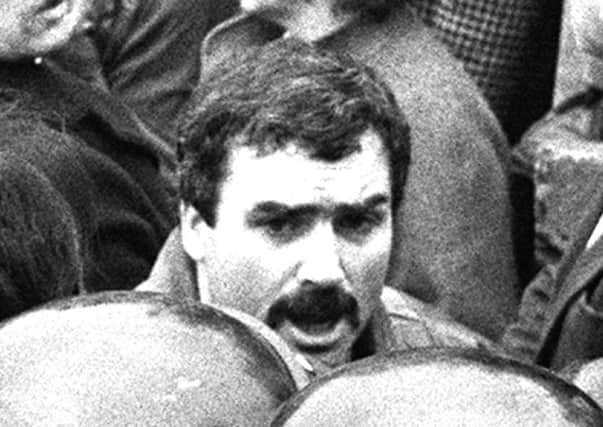Stakeknife inquiry will probe IRA top brass as well as agent handlers


The inquiry’s terms of reference, which the News Letter has gained access to ahead of their publication on Friday, set out a number of clear objectives within the broad scope of the investigation, which the PSNI refers to as Op Kenova.
The first is the identifying of the evidence of any criminality committed by Stakeknife. As that criminality would have direct implications for the agent’s handlers and those he worked alongside within IRA internal security, the search for criminality and threat of prosecution extends to them.
Advertisement
Hide AdAdvertisement
Hide AdIn an interview with the News Letter about the investigation, PSNI Chief Constable George Hamilton said: “We’ll be reaching into a lot of very difficult places.
“This [IRA] internal security team was much wider than just Stakeknife. The IRA rules at the time would have meant that the killing of a volunteer alleged to have been an agent would need to be authorised at a very senior level. So, there may well be other criminalities falling out of that conspiracy to murder and so on.
“If we get to the point where we need to be arresting people and interviewing them, we’ll do that. Regardless of who they are or what positions they hold, we’ll go where the evidence takes us and call it as it is for investigative purposes.”
Stakeknife, the prized British asset who operated within the IRA’s notorious internal security unit, is alleged to have been responsible for the interrogation, violent torture and brutal murder of more than 50 people.
Advertisement
Hide AdAdvertisement
Hide AdA number of families of those shot dead as ‘informers’ allege that security forces failed to prevent murder and instead allowed Stakeknife to kill in cold-blood, as a means of protecting his status as their “most important” insider.
The complex inquiry will seek answers in a murky and ambiguous world of overlapping interests and interlinked crimes.
An external investigation will be led by Chief Constable Jon Boutcher of Bedfordshire Police, an experienced officer who took a senior role in the investigations which followed the 7/7 bombings in London.
Mr Boutcher will oversee the building of a core team infrastructure to recover evidence related to the cases in question.
Advertisement
Hide AdAdvertisement
Hide AdMr Hamilton explained how the team will be entrusted with thousands of secret and top secret documents while operating out of England.
“We made the decision, both on the basis of cost and independence, that the team would be housed in secure accommodation in London.”
He further disclosed how the investigative team is expected to grow to full operational strength – between 70 and 80 members – within a year.
The London facility in which they’ll be based is already being equipped with an IT system designed to correlate information across large datasets. The system will allow the investigative team to connect the dots across the mass of intelligence information that must be made available to them.
Advertisement
Hide AdAdvertisement
Hide AdIn his interview with the News Letter, Mr Hamilton emphasised his commitment to providing complete access to any files Mr Boutcher’s investigators require as well as confidence that other relevant government departments will cooperate.
“In this organisation, access will be absolutely unfettered. I will personally make sure that that is the case.
“I’d be optimistic that the team won’t have too much difficulty, in terms of access to material, totally across government.”
While explicitly affirming that the role of the team was to secure evidence for the prosecutor and not public disclosure, the Chief Constable also attempted to quell apprehension about the state withholding information in order to hide the truth or protect those involved.
Advertisement
Hide AdAdvertisement
Hide Ad“There are genuine issues around methodology and risk to people’s lives that we have to take seriously but we’ll not use them as an excuse or hide behind them.
“We should never be redacting or not disclosing information to save ourselves embarrassment. Embarrassment is not a national security issue.”